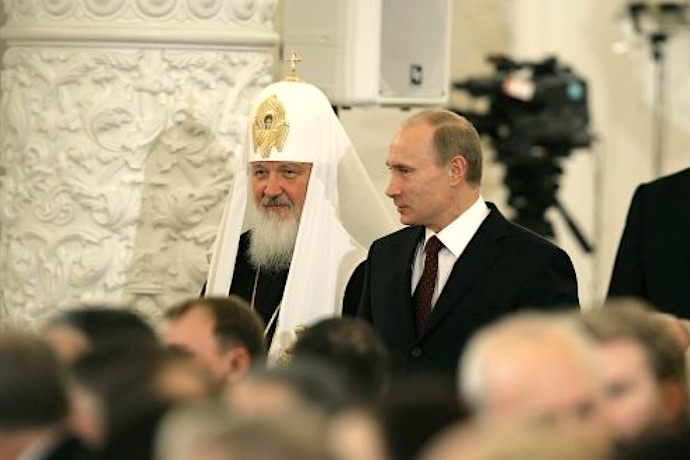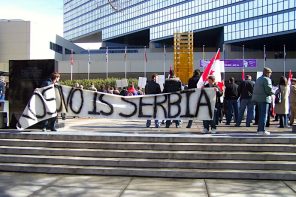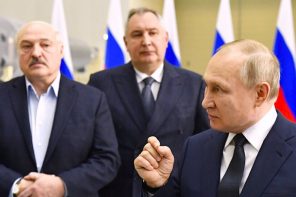Patriarch Kirill of Moscow and All Rus is not calling for peace in Ukraine, and the fact that some in the Western media seem to think he has done so is evidence of how much the West has to learn about Orthodox Christianity, church-state relations in Russia, and Kirill himself.
The first time the leader of the Russian Orthodox Church spoke after Russian troops entered Ukraine (but before fighting had officially begun) was during the commemoration for Defender of the Fatherland Day (known, before 1993, as Red Army Day) when Kirill offered a long, nationalist sermon in which he described the “sacred border of Russia” and called our era a “time of peace”—which seems quite inexplicable considering current events.
At the exact moment Putin announced the “special military operation” in (i.e. invasion of) Ukraine, Kirill issued a toothless statement that not only failed to plainly call for the end of violence, but actually re-stated the historical justification for the invasion that had been offered by Vladimir Putin earlier in the week. This shouldn’t be too surprising as it’s the same version of history Kirill has used before to argue against the independence of the Ukrainian Orthodox Church and in favor of keeping Ukrainian Orthodox Christians under the yoke of Moscow.
Kirill’s tepid remarks also stand in contrast to the words of other Orthodox hierarchs. The Ecumenical Patriarch Bartholomew of Constantinople, for example, called the invasion an unprovoked attack and a violation of human rights. Patriarch Daniel of Romania called the violence, “ a war launched by Russia against a sovereign and independent state.” Even Metropolitan Onufry, the head of the Ukrainian Orthodox Church that’s still tied to the Moscow Patriarchate—literally, Kirill’s Man in Kyiv—compared the Russian invasion to Cain killing his brother Abel and addressed Putin directly.
This difference has not gone unnoticed by those in Russia and Ukraine and throughout the Eastern Christian world. In the words of Sergei Chapnin, editor-in-chief of «The Gifts» (Дары),writing at Public Orthodoxy:
Today it is abundantly clear: Patriarch Kirill is not ready to defend his flock—neither the people of Ukraine nor the people of Russia—against Putin’s aggressive regime. Human suffering is not one of his priorities.
After all, next Sunday Orthodox Christians around the world will observe Forgiveness Sunday, the final day before Lent. On this day, the liturgical practice remembers the expulsion of Adam and Eve from Eden and calls on individual believers to repent of their sins against others. The period of repentance and fasting ahead would be the ideal occasion for Patriarch Kirill to exercise the authority of Orthodox hierarchs to concretely condemn and punish the aggressors in this situation. He could, in effect, issue his own religious sanctions, cutting Putin, his government, military leaders, and even ordinary soldiers off from the Eucharist.
But he will not do that. Because Patriarch Kirill is an accomplice to Vladimir Putin and has made the Russian Orthodox Church (once again) an agent of state power. The fact that some in the West are not able to plainly see this is to their detriment, because it blinds them from seeing how power is operating in Russia and beyond. It’s nice to think that the head of the Russian Orthodox Church is calling for peace, but he’s doing nothing beyond the bare minimum and his complicity is encouraging the aggressors in this catastrophe.
I was raised an Orthodox Christian in the West. As a product of the Orthodox diaspora, I am intimately aware of the misunderstandings and misperceptions on both sides. As is nearly always the case, the ignorance is much greater on the Western side—the dominant power always feels that it needs less information about others. But the invasion of Ukraine and the unbridled aggression of a decidedly Orthodox Russia has made this ignorance no longer acceptable. Patriarch Kirill is not calling for peace. That, at least, can no longer be missed.
###
Correction: the date of Forgiveness Sunday was ambiguously worded in the original text. It has been updated to more clearly reflect the date of the holiday, which is March 6.





